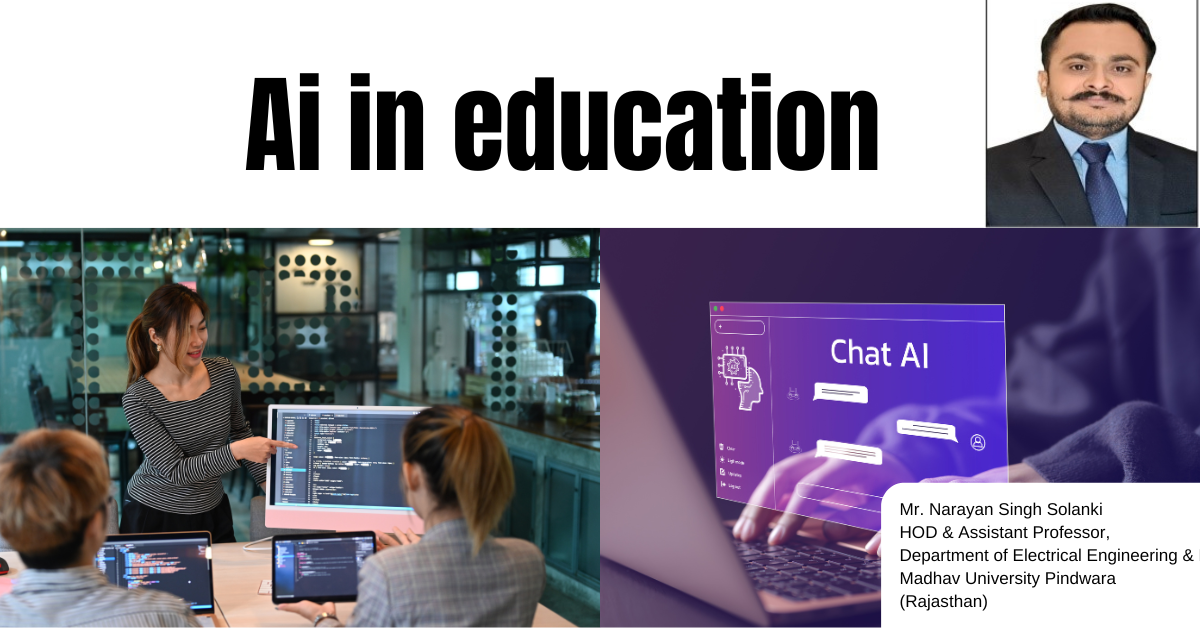Artificial Intelligence (AI) is revolutionizing various sectors and education is no exception. From personalized learning experiences to administrative efficiencies, AI’s role in education is becoming increasingly pivotal. As we delve into the importance of AI in education and explore its future potential, it becomes evident that AI is set to transform the educational landscape profoundly.
The Importance of AI in Education
- Personalized Learning:
AI enables personalized learning experiences tailored to individual student needs. Adaptive learning platforms use AI algorithms to assess students’ strengths, weaknesses, and learning styles, adjusting the content and pace accordingly. This personalized approach helps students master concepts more effectively and keeps them engaged.
- Teaching Methods:
AI tools assist teachers by automating routine tasks such as grading, attendance, and administrative work. This allows educators to focus more on instruction and student interaction. AI can also provide data-driven insights into student performance, helping teachers identify areas where students may need additional support.
- Improved Accessibility:
AI-powered tools enhance accessibility for students with disabilities and non-native speakers. Speech-to-text applications, language translation tools, and customized learning materials ensure that education is inclusive and accessible to all students, regardless of their background or abilities.
- Increased Engagement:
AI can create engaging and interactive learning experiences through gamification and virtual learning assistants. Gamified learning platforms adapt to students’ skill levels, providing a fun and motivating way to learn. Virtual assistants offer instant support, answering questions and providing feedback, making learning more dynamic and interactive.
- Streamlined Administrative Processes:
AI automates administrative tasks, such as scheduling, enrollment and communication, improving efficiency and reducing the workload on educators and administrative staff. Predictive analytics powered by AI can help institutions anticipate trends, manage resources effectively, and implement proactive measures to address potential challenges.
The Future of AI in Education
- Lifelong Learning:
AI will support lifelong learning by providing continuous, personalized educational opportunities. AI-driven platforms can offer tailored courses and resources, enabling individuals to develop new skills and knowledge throughout their careers. This continuous learning approach is crucial in a rapidly changing job market.
- Collaborative Learning:
AI will enhance collaborative learning by connecting students globally and facilitating teamwork on projects and assignments. Virtual classrooms and AI-driven collaboration tools will foster cross-cultural understanding and teamwork, preparing students for a globalized world.
- Virtual Reality:
The integration of AI with augmented reality (AR) and virtual reality (VR) will create immersive learning experiences. Students can explore virtual environments, conduct virtual experiments, and interact with AI-driven simulations. This hands-on, experiential learning approach will make complex concepts more accessible and engaging.
- Autonomous Learning Systems:
Future AI systems will be capable of autonomously creating and delivering educational content. These systems will continuously adapt to student needs, providing real-time feedback and support. Autonomous learning systems will empower students to take control of their education, fostering independent learning and critical thinking skills.
- Ethical AI in Education:
As AI becomes more integrated into education, ethical considerations will be paramount. Ensuring data privacy, addressing biases in AI algorithms, and promoting fairness and transparency will be critical. Developing ethical guidelines and frameworks will ensure that AI is used responsibly and equitably in education.
Challenges and Considerations
- Data Privacy and Security:
The use of AI in education involves collecting and analyzing vast amounts of student data. Ensuring robust data privacy and security measures is essential to protect sensitive information and maintain trust.
- Teacher Training and Adaptation:
Educators need to be trained to effectively use AI tools and integrate them into their teaching practices. Professional development programs should be implemented to help teachers adapt to new technologies and methodologies.
- Addressing Bias and Fairness:
AI systems can perpetuate biases present in the data they are trained on. Continuous monitoring and evaluation of AI algorithms are necessary to ensure they are fair and unbiased, providing equal opportunities for all students.
Mr. Narayan Singh Solanki
HOD & Assistant Professor,
Department of Electrical Engineering
& EEE,
Madhav University Pindwara
(Rajasthan)

